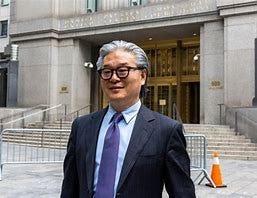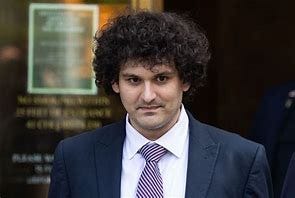The Rise of Archegos
When Bill Hwang founded Archegos Capital Management in 2013, he named it after the Greek word for 'leader' or 'one who leads the way.' That name would prove ironically fitting - Archegos would indeed lead the way, but toward one of the biggest financial collapses in recent history.
The financial industry loves to make simple things sound complex, so let's begin with how Hwang used basic human nature - particularly greed and trust - to build Archegos into a financial powerhouse. He set it up as what's called a 'family office' - but this wasn't just any wealth management firm.
Every bank he worked with thought they had an excellent client. Each believed they had a clear picture of how much risk they were taking. But Hwang was playing a much bigger game, using sophisticated financial tools to build hidden mountains of risk.
Building the Scheme
At the centre of his scheme was a special kind of financial arrangement called a total return swap. Imagine you want to bet on a horse but don't want anyone to know you're betting. So instead of placing the bet yourself, you pay someone else to place it for you - they keep the ticket, but you get all the winnings or cover all the losses. That's basically what Hwang did with stocks. He paid banks to buy shares for him, keeping his name off the books while still controlling the investments. The clever part? He could make the same arrangement with multiple banks, like placing the same bet with different bookmakers, multiplying his potential winnings - and risks. The bank would buy the shares, and Hwang would promise to cover any losses if the share price fell. In return, he would receive any profits if the shares rose. He'd pay a small fee for this arrangement - much like paying a bookmaker's commission.
What made this particularly clever was how Hwang used these swaps to build enormous positions while hiding the true scale of his bets. For every pound he put down, he could control five- or six-pounds worth of shares. Because he didn't technically own the shares, he didn't have to tell regulators about his positions. Most importantly, he could make similar arrangements with multiple banks, each unaware of the others.
The Power of Family Offices
Hwang ran this operation through what's called a "family office" - but this wasn't just any wealth management firm. Family offices are like private investment companies for the ultra-wealthy. Imagine having your own personal Goldman Sachs, but without all the rules regular banks face. They were originally created to help wealthy families manage their money and give to charity. But they've evolved into something much more powerful - like hedge funds operating in the shadows. Today, family offices globally control more than £4 trillion - more money than the entire hedge fund industry - yet face far less scrutiny. Imagine having all the power of a major investment firm but without most of the rules.
The Collapse
The danger of this setup became clear when things started to go wrong. Think of it like taking out multiple mortgages on the same house from different banks, with each bank thinking they're the only lender. It works brilliantly until something goes wrong - and something always goes wrong eventually. When the prices of Hwang's investments started to fall, the banks got nervous. It’s like putting down a 10% deposit on a house - if the house value falls too much, the bank wants you to pay more to protect their loan. In Hwang's case, when his investments fell, banks started demanding more money as security. But here's the important difference from a house - these demands came within hours, not months, and from multiple banks at once. Hwang couldn't provide enough extra money, so banks started selling shares to recover their loans. This pushed share prices down further, leading to more demands for collateral and more selling. Within days, billions of pounds had evaporated, and several major banks, including Credit Suisse, Nomura, Goldman Sachs, and Morgan Stanley, faced huge losses.
Red Flags Ignored
What makes this story particularly troubling is Hwang's history. He'd already been caught breaking financial rules at his previous firm, Tiger Asia. He'd paid £35 million in fines and been banned from trading in Hong Kong. Yet somehow, he was able to convince major banks to help him build an even bigger scheme.
Systemic Failures
The Archegos collapse exposed uncomfortable truths about our financial system. Despite reforms after the 2008 financial crisis, similar risks simply built up in new forms. Family offices became powerful enough to threaten financial stability while remaining lightly regulated. Banks continued to chase profits while ignoring obvious warning signs. Most worryingly, complex financial instruments could still be used to hide enormous risks from regulators and the public alike.
In November 2024, Hwang was sentenced to 18 years in prison. But the system that allowed him to build such dangerous positions remains largely unchanged. Today, other family offices continue to operate with minimal oversight, using the same financial instruments that Hwang employed. The most unsettling part? We only found out about these risks after they exploded. The question isn't whether another Archegos exists, but when and where the next one will blow up.
Why Should You Care?
The Archegos story isn't just about a wealthy investor's downfall or banks losing billions. It matters to all of us for three important reasons.
First, it shows how financial risks that seem contained to the ultra-wealthy can suddenly affect everyone. When banks lose billions, they become more cautious about lending - not just to big investors, but to regular businesses and homebuyers too. The losses they suffer get passed on through higher fees and stricter lending terms.
Second, it reveals that despite all the lessons from the 2008 financial crisis, the same dangerous patterns can reappear in new forms. Back then, it was complex mortgage products that hid massive risks. With Archegos, it was total return swaps and family offices. The names change, but the fundamental problem remains, financial firms finding new ways to take huge risks while avoiding oversight.
Finally, and perhaps most worryingly, we only learned about these risks after they exploded. Right now, other family offices could be building similar positions using the same tools Hwang used. The system that made this possible hasn't fundamentally changed. As wealth becomes more concentrated and family offices grow more powerful, this regulatory blind spot becomes increasingly dangerous for financial stability - and ultimately, for all our economic wellbeing.
Postscript: History Rhymes - The FTX Echo
The collapse of Archegos in 2021 shares striking parallels with the implosion of FTX in late 2022. Like Bill Hwang, Sam Bankman-Fried built an empire by exploiting trust and regulatory gaps, though in the newer world of cryptocurrency rather than traditional finance. Both stories feature the same essential ingredients: a charismatic leader, complex financial instruments used to obscure reality, multiple entities unknowingly exposed to the same risks, and a spectacular collapse that happened in days rather than months.
The key difference? While Hwang operated in the shadows of the traditional financial system, Bankman-Fried built his house of cards in plain sight, becoming the public face of crypto while allegedly misusing customer funds through his trading firm Alameda Research. Both cases expose how financial institutions can grow too big to fail before regulators or the public fully understand the risks they pose.
Perhaps most tellingly, both stories demonstrate how the financial industry's push for innovation often outpaces its risk management capabilities. Whether it's total return swaps or cryptocurrency exchanges, new financial instruments and institutions can accumulate systemic risks in ways that aren't apparent until it's too late. The Archegos collapse cost banks billions; the FTX implosion wiped out billions in customer funds.
These parallel stories, separated by just months, suggest that our financial system hasn't fully solved the problems that led to the 2008 crisis. Instead, these risks have morphed and migrated to new corners of the financial world. As traditional finance increasingly intersects with new financial technologies, the lesson from both Archegos and FTX becomes clear: the fundamental challenges of regulating complex financial systems remain as relevant as ever.
The question now isn't just about preventing the next Archegos or FTX, but about creating regulatory frameworks agile enough to keep pace with financial innovation while robust enough to protect against age-old human tendencies toward greed and excess. As we move further into an era of increasingly sophisticated financial instruments and institutions, these cases serve as sobering reminders that the more things change, the more they stay the same.




